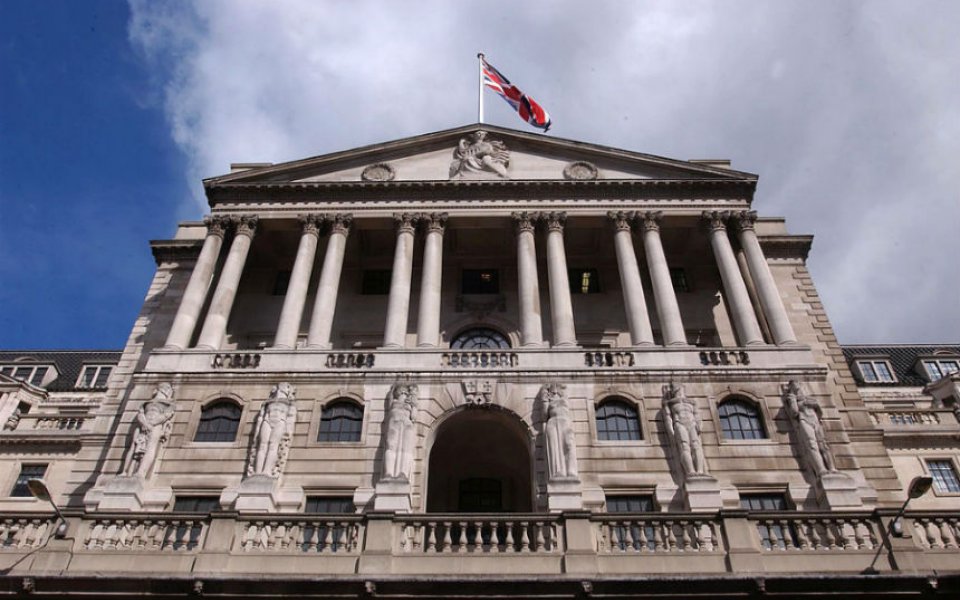Bank of England Backs Blockchain Users
The Blockchain mania had already gobbled the European market and it is all ready to rock the European banking system. Bank of England is all set for a makeover of its payment system by use of Distributed Ledger Technology (DLT). The move by the central Bank can surely be marked as a positive development for Blockchain and its future in Britain.
PRESENT SCENARIO AND FUTURE TARGET
The BoEs Real-Time Gross Settlement (RTGS) system presently handles over 500 billion pounds of transactions, which is equivalent to about a third of Britain’s annual economic output. The bank has targeted 2020 as the year of its digital revamp of the payment system. The said move would strengthen cyber-security and would also infuse new blockchain based financial companies into mainstream trade and banking.
HOW DOES BoE WITNESS ITS MOVE?
BoE in its statement quoted,”All participants confirmed that the functionality offered by the renewed RTGS service would enable their systems to connect and to achieve the settlement in central bank money.” A significant step in the progress of Blockchain development in BoE was marked in March 2018, when the Bank announced a “proof of concept” with several firms to monitor and study changes RTGS would need. The changes are seen as essential to build and foster relations with Blockchain based firms, which use cryptocurrencies to facilitate trade on their platform.
WHY IS GOVERNMENT SO KEEN OF BLOCKCHAIN?
The UK government is all prepared to boost the development of Blockchain in the UK to maintain the crown of being the leading fintech supporting and innovation center.
Other significant European Union cities like Berlin, Paris etc wish to woo these fintech cooperations from Britain. The efforts of these major economic centers are the response to the consequences of Brexit next year which might give Britain access to Blockchain’s single market.
IDEAS AND RECOMMENDATIONS
The Bank in its statement said that” A number of recommendations were received to ensure optimal access to central bank money.” One of the recommendations will be to check whether the modified RTGS system would be able to provide and use “cryptographic proofs.” The basic idea behind the use of “cryptographic proof” is the motive to stop data theft and ensure immutability of data.
With the recent development in British Banking system, the BoE seems firm to lure fintech companies to keep up to date with developments in payment and banking technologies.
The central bank would be extra-precautious after the RTGS had suffered a major outage in October 2014. The whole motive behind this innovative development of payment system is to facilitate a trade of smaller firms. The goal is to make banking accessible to smaller firms to boost competition and innovation.
VISION OF BoE
The BoE governor Mark Carney envisions a system that makes smaller firms to use BoE’s payment system directly rather than through large political banks.
A progressive and innovative banking system is a big trend-setter and torchbearer for other countries. The use of Blockchain not only shows the will of BoE to make banking easier for smaller organizations but also making it transparent.
United kingdom sets an example for other nations who have still not built their trust in modern Blockchain based banking system and it seems that such innovations would surely bring a positive change in society and a positive outlook to the financial world.
Stay informed with daily updates from Blockchain Magazine on Google News. Click here to follow us and mark as favorite: [Blockchain Magazine on Google News].
Get Blockchain Insights In Inbox
Stay ahead of the curve with expert analysis and market updates.
latest from tech
Disclaimer: Any post shared by a third-party agency are sponsored and Blockchain Magazine has no views on any such posts. The views and opinions expressed in this post are those of the clients and do not necessarily reflect the official policy or position of Blockchain Magazine. The information provided in this post is for informational purposes only and should not be considered as financial, investment, or professional advice. Blockchain Magazine does not endorse or promote any specific products, services, or companies mentioned in this posts. Readers are encouraged to conduct their own research and consult with a qualified professional before making any financial decisions. The featured image used is just a creative depiction of the title and it does not intend to hurt sentiments of any person or institution. If it hurts anyone sentiments, please do not hesitate to reach out to Blockchain Magazine.

 Bitcoin
Bitcoin  Ethereum
Ethereum  XRP
XRP  Tether
Tether  Solana
Solana  USDC
USDC  Dogecoin
Dogecoin  Cardano
Cardano  Lido Staked Ether
Lido Staked Ether  TRON
TRON  Wrapped Bitcoin
Wrapped Bitcoin  Chainlink
Chainlink  Wrapped stETH
Wrapped stETH  Sui
Sui  Avalanche
Avalanche  Stellar
Stellar  Hedera
Hedera  Toncoin
Toncoin  Shiba Inu
Shiba Inu  LEO Token
LEO Token  Hyperliquid
Hyperliquid  Bitget Token
Bitget Token  Litecoin
Litecoin  WETH
WETH  USDS
USDS  Polkadot
Polkadot  Bitcoin Cash
Bitcoin Cash  Ethena USDe
Ethena USDe  MANTRA
MANTRA  Wrapped eETH
Wrapped eETH  Uniswap
Uniswap  Pepe
Pepe  Ondo
Ondo  Monero
Monero  Aave
Aave  WhiteBIT Coin
WhiteBIT Coin  NEAR Protocol
NEAR Protocol  Mantle
Mantle  Official Trump
Official Trump  Aptos
Aptos  Dai
Dai  Internet Computer
Internet Computer  Ethereum Classic
Ethereum Classic  Bittensor
Bittensor  Cronos
Cronos  OKB
OKB  POL (ex-MATIC)
POL (ex-MATIC)  Gate
Gate 




